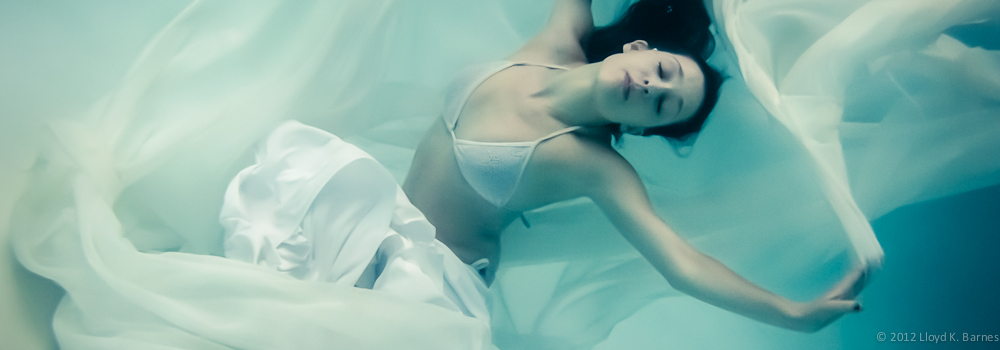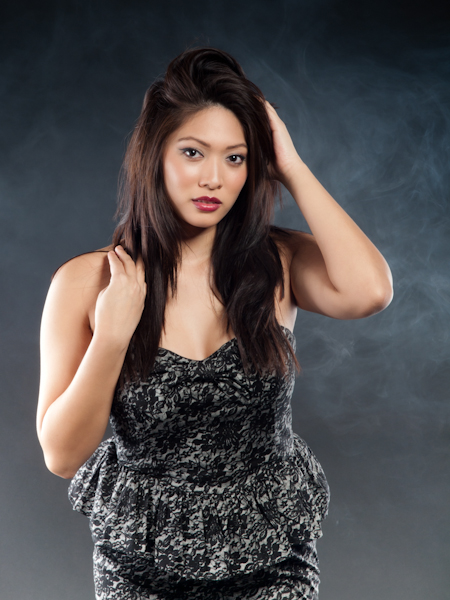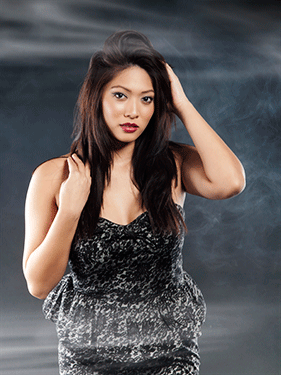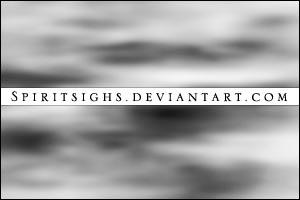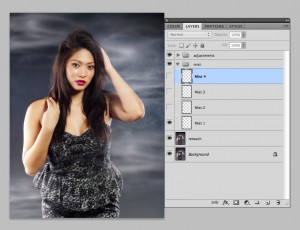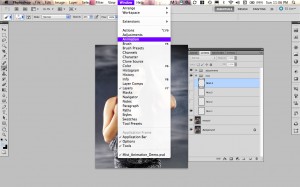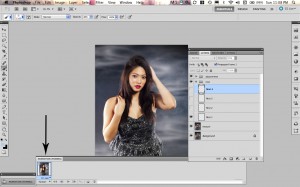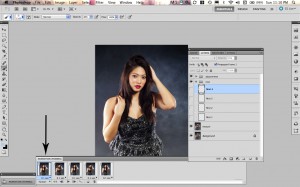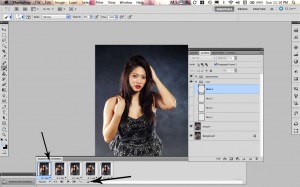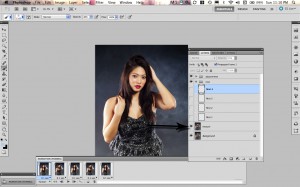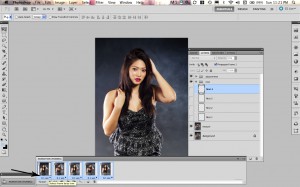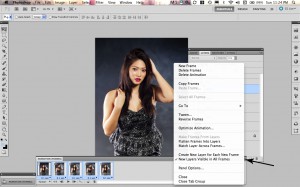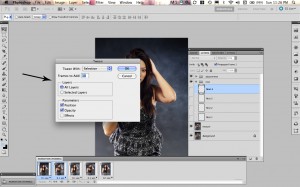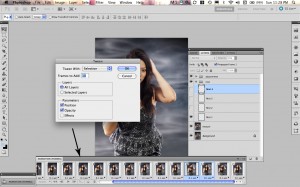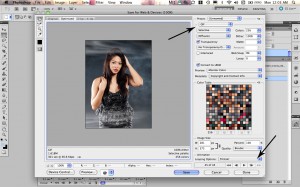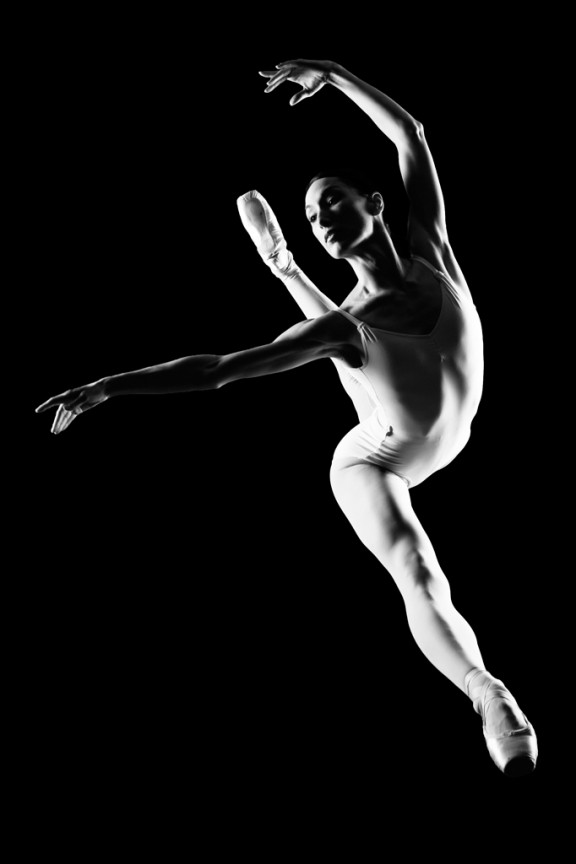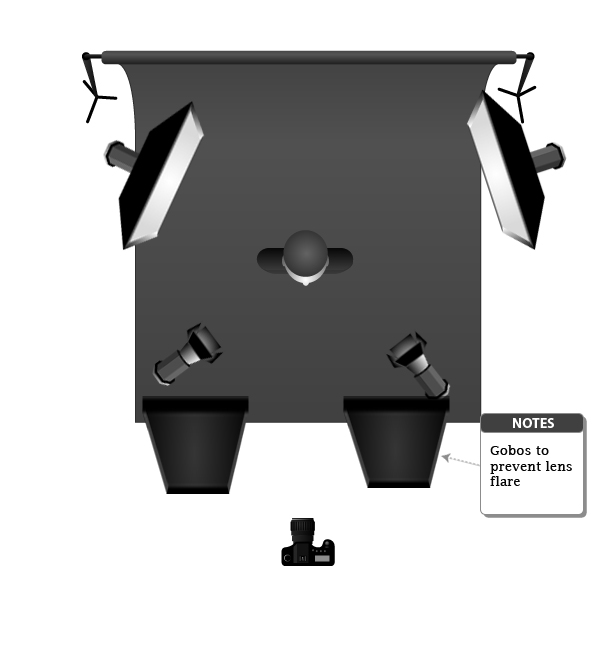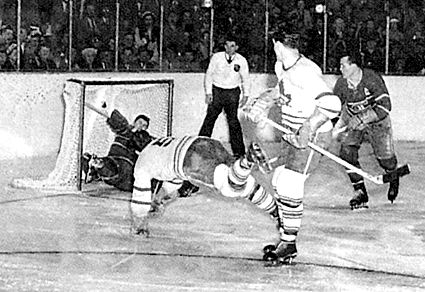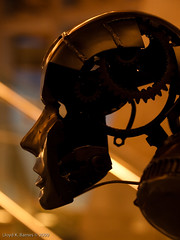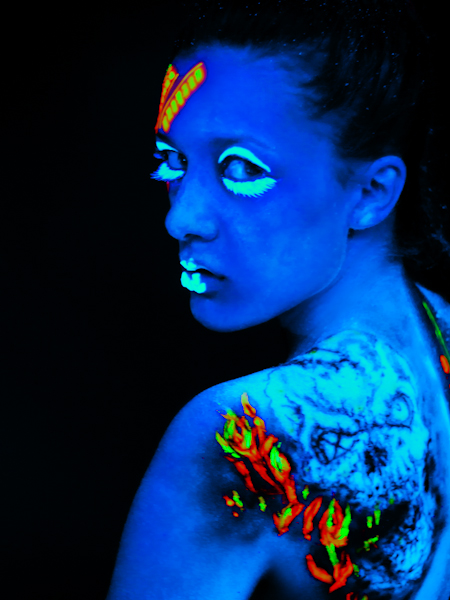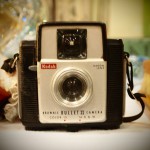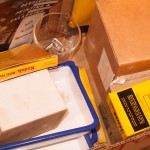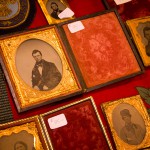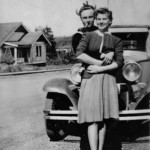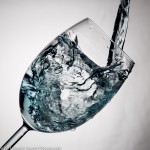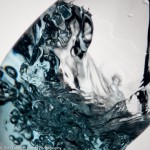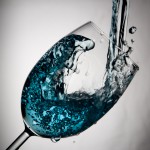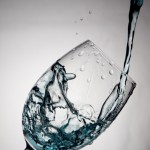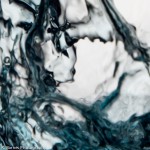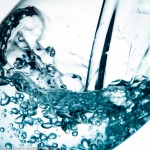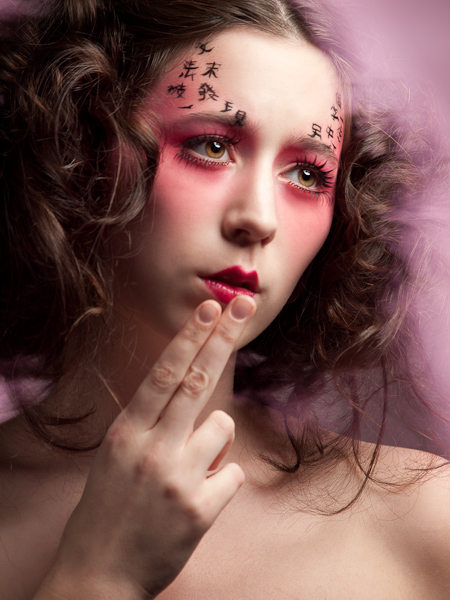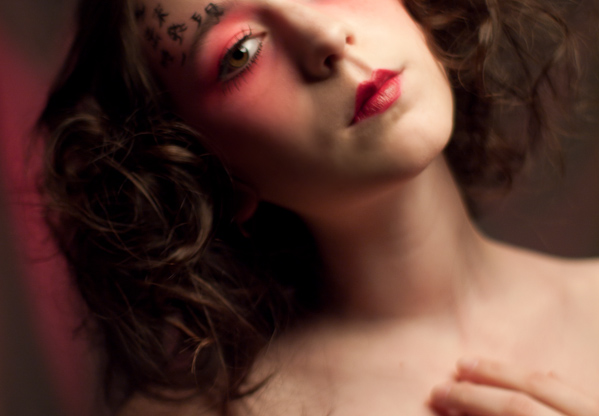How to Create a Cool Animated Mist Effect in Photoshop CS5
I love these animated gifs and wanted to try something like that myself. I did a photoshoot a couple of months ago and used a fog machine to create a misty background. It would be cool to show the mist swirling around in a short animated gif. The original photo had some mist, but I wanted to add some more in Photoshop and then animate it.
Original:
Animated:
Photoshop CS5
Level of difficulty: Intermediate. You should be familiar with working with layers, resizing images and using the warp tool.
Create the mist layers:
(Click on the screen shots to zoom)
- Create a blank layer above the edited/retouched photo
- Paint some mist on the blank layer & name the layer Mist 1. I used these mist brushes by SpiritSighs.
- Copy the layer, name it Mist 2 and warp it using Edit => Transform => Warp. You can warp the mist to make it look like it has drifted around.
- Copy the warped layer and repeat with another warp (Mist 3).
- Copy the above layer and warp it again (Mist 4). You will now have the original image plus four mist layers above it. Click on Fig. 1 to expand.
Create the Animation Frames:
- Select the 5 layers and open the animation window (Window => animation - Fig. 2). Make sure you are in frame view (Fig. 3).
- Click on the frame and duplicate it by dragging it to the new frame icon. Repeat this four times to give a total of 5 frames (Fig. 4 & 5).
- Click on the first frame. Go to the layers panel and make only the base layer (retouch) visible (Fig. 6).
- Click on the second frame and make the retouch layer on the Mist 1 layer visible using the layers panel
- Click on the third frame and make the base layer & the Mist 2 layer visible.
- Click on the fourth frame and make the base layer & the Mist 3 layer visible
- Click on the fifth frame & make the base layer & the Mist 4 layer visible
- Select all 5 frames by clicking on the first and Shift-Clicking on the last one.
- Change the frame delay time to 0.1 (Fig. 7) You can try different timings depending on what works best for your project.
Tween the animation to make it run more smoothly
- Click on the first frame and Shift-click on the second frame
- Go to the animation menu and choose Tween... (Fig. 8)
- Enter 10 in the "frames to add box" and select all layers, and position & opacity (Fig. 9)
- Select frames 12 & 13 and repeat the Tween for these two frames. Repeat this for frames 23 & 24 and 34 & 35 (See Fig. 10)
- Duplicate the last frame (45) and move it to the front
- Tween the first and second frames as before. This makes the animation smoothly cycle back to the beginning.
- Make sure the repeat mode is "Forever"
- Save everything!
Check it out - when you press the play button you will have a pretty smooth animation!
Save the animated gif
- Resize the image to the size that you want (I used a height of 375 pixels because it gave me a file size under 2 MB). Go to Image => Image Size and select the size that you want, making sure to lock the aspect ratio.
- Go to File => Save for Web & Devices.
- Set to "forever"
- Select Gif and Save (Fig. 11)
To view the animated gif, open it with your browser.
I'm looking forward to doing some more of these animations and have lots of ideas for future shoots! If you have tried it, please share by posting a link in the comments section.
Vancouver Urban Culture Conference

The first annual Urban Culture Conference is going to be held in Vancouver August 27-28, 2011 and it looks like it will be a very cool event with arts, music, food and entertainment featuring Vancouver's local talent.
Right now there is a competition for the best of Vancouver in a bunch of different categories, including photography. I'm nominated and would buy seroquel love it if you took a couple of minutes to vote.
To vote:
- Go to Urban Culture Conference
- Scroll down to Step 1. Pick a category
- Choose Arts, then Photographers
- Vote for your favourite Vancouver Photographer - Lloyd Barnes

Thanks! I'm hoping to get enough votes to stay in the running by June 1 when the selction of candidates will be narrowed down.
There are a lot of other categories to vote on (you can vote once per category) so browse and support Vancouver's talent!
Lighting for a dark & shadowy look
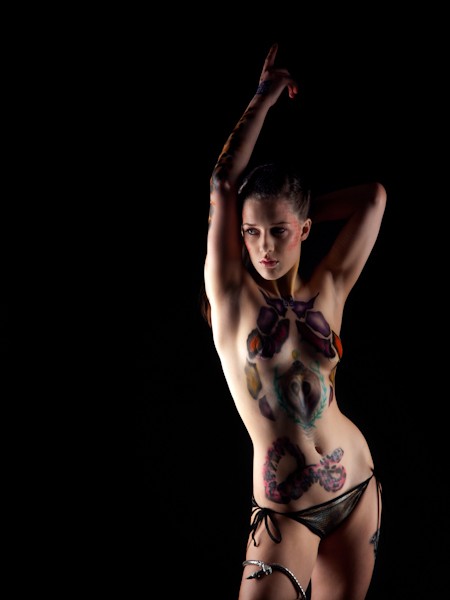
I was inspired by the ballet dancer photograph (see below) by Chase Jarvis and decided to try a similar lighting style for a photoshoot that I did last week. I was shooting body painting work by makeup artist Meghan Thomas for actor, model and dancer Genevieve Clements. The theme was Medusa, the gorgon of Greek mythology with venomous snakes for hair and the power to turn to stone anyone who looked at her face.
I wanted a dark, shadowy look for the Medusa theme, but also wanted to make sure that the body painting was visible. To achieve this, I used a black https://www.bullens.com/buy-antibiotics-online/ seamless paper background and positioned two softboxes behind the model, one on each side. This is similar to the set up for the Chase Jarvis ballet dancer shot. I then added two gridded strobes in front to use as spotlights for highlighting the makeup and body painting. I also used two large black foamcore panels to block the light from the softboxes to prevent lens flare (see the lighting diagram below).
Post-processing was done with Lightroom 3.4 and Photoshop CS5. I increased the contrast and did some light retouching, but kept the colours to highlight the body painting.
Let me know what you think. Do you have some lighting techniques that you use to give a shadowy look?
Lighting diagram courtesy of Kevin Kertz.
11 Greatest Hockey Photos
We’re in the middle of the NHL playoffs and I’m rooting for the Vancouver Canucks. They are the best team in the league this year and have never yet won the Stanley Cup in the team’s 40 year history. They have had a tougher time in the playoffs, but are now one game away from winning the second round against the Nashville Predators, and moving to the next round with either the Detroit Red Wings or the San Jose Sharks.
Ice hockey is the most popular sport in Canada, and it's great to be living in Vancouver with all the play-off excitement. In celebration of the Stanley Cup playoffs, here are my favourite hockey photos. I was going to pick 10 but couldn't decide which one to eliminate, so this list goes to 11!
11. Eddie Shack ("The Entertainer") of the Buffalo Sabres jumping on the back of Gerry Ehman in 1971. Eddie Shack was famous for his antics on the ice and I think this photo captures it perfectly!
10. Ken Dryden was an outstanding goaltender with the Montreal Canadiens in the 1970's, when Montreal won 6 Stanley Cups. During breaks in the play, Dryden would often lean on his stick and rest as shown in this iconic photo.
9. A toothless Bobby Clark after the Philadelphia Flyers won the Stanley Cup against the New York Islanders in 1975. The Flyers were nicknamed "The Broad Street Bullies" for their aggressive style and Bobby Clark looked like a true fighting hockey player in this shot!
8. The Miracle on Ice: The underdog USA team beat the heavily favoured Soviet Union and went on to win the gold medal in the 1980 Lake Placid Olympic Winter Games. I love the celebrations after the win!
USA Olympic Gold Medal in 1980
7. Maurice "Rocket" Richard was one of the greatest hockey players in the NHL, and he dominated the game with the Montreal Canadiens in 1942-1960. In 1955, he was suspended for fighting a linesman, which resulted in riots in Montreal.

Maurice Richard in a Fight 1955
6. This is a pretty amazing photo. It shows Gordie Howe (Mr. Hockey) with Wayne Gretzky, who at age 9 was already https://bea-skincare.com/wp/buy-accutane-online/ being noticed as a future hockey star. Both Howe and Gretzky broke numerous records during their careers and were considered the greatest players of their times.

Gordie Howe with 9-year old Wayne Gretzky
5. Sidney Crosby Scores after scoring the goal in overtime to win the gold medal in the 2010 Vancouver Olympic Winter Games. It was a very exciting game and after he scored, Crosby threw his gloves and stick in the air. This is a great shot of that moment!
Sidney Crosby - after scoring to win Gold in 2010 Olympics
4. Wayne Gretzky, "The Great One" set many hockey records and dominated the game during the 1980's when he played for the The Edmonton Oilers. They won 5 Stanley Cups in 6 years (1983-4 to 1989-90). Here's a photo of Wayne Gretzky from 1987 after defeating the Philadelphia Flyers.
3. Russia is a another great hockey country with strong teams and players. However, during the cold war, Russian players could not play in the NHL. In 1972 Canada and the Soviet Union competed in the Summit Series. This photo was taken just after the series-winning goal by Canada's Paul Henderson - one of the great moments in Canadian hockey.
2 .Bobby Orr after scoring the goal that won the Stanley Cup for the Boston Bruins in 1970. Bobby Orr was one of the best hockey players in history and I love this shot taken immediately after he scored the winning goal against the St. Louis Blues in 1970.
1. Bill Barilko scored the winning goal for the Toronto Maple Leafs in 1951 in overtime against the Montreal Canadiens. The photo show the Barilko diving through the air as the puck just entered the net. Sadly, he disappeared in a boating trip that summer. His body was eventually found in 1962 when the Leafs won the Stanley Cup again.
The story of Bill Barilko is told in the song 50 Mission Cap by The Tragically Hip:
I'm looking forward to some more great moments in the upcoming 2011 Stanley Cup play-offs!
What are your favourite hockey photos? Post your links in the comments section below.
Related links
The QR Code – Visual Virus or Useful Tool for Photographers?
Quick Response (QR) codes are 2 dimensional barcodes that seem to be cropping up everywhere. They have been around for a while (especially in Japan) but are starting to be seen in North America. QR codes contain information that you quickly read by scanning it with a smartphone’s camera - a convenient way to transfer printed data to digital.
Ugly Looking Spammer Tool?
Are they visual viruses, spreading much the way the original barcodes did in the 1980's? Will they become a permanent part of our environment or will they die off? Like viruses, they encode information that helps them spread. They multiply because they offer or point to data in exchange for the space they occupy in our environment.
QR codes could be used for unwanted advertising, spam and computer viruses. Unless these things can be prevented, it will limit acceptance of QR codes. You would only want to scan codes from trusted soruces, or have some kind of spam blocker. But because they are printed, they are less likely to spread anything malicious just because there are cheaper ways of doing that!
Useful technology?
I was wondering how photographers might use them, so I did a little research and found many creative ideas.
- Add contact information to address books
- Send e-mails and text messages
- Link to web pages, photos or videos with useful information or entertainment
Since QR codes are relatively new in North America, they have a novelty value as people are curious and entertained by the technology. It is pretty cool to point your cameraphone at a QR code and see how fast it scans! But after the wow factor wears off, people will abandon it if it doesn't make their lives easier.
QR codes have a techie, futuristic look dominated by function rather than aesthetics. It's interesting that they are meaningful but cannot be understood without a device to read it. They symbolize our increasing dependence of information technology. The QR code on this page means nothing until you scan it. So as a communication tool, it addresses the segment of the population who use smartphones (currently less than 50% of the mobile users, but growing rapidy).
I have seen photos watermarked with QR codes with copyright information or a link to the photographer's accutane buy online website. I don't like the way the QR code competes for attention detracting from the subject in the photo. In galleries, the QR code can be next to the photograph, which works well. It can provide background information or be used artistically with an interactive multimedia application.
Where will this lead us?
Microsoft has a similar technology called The Tag. Tags look nicer with colour, and can be customized to fit with your brand. They link to a database allowing the owner to track the tags and change the associated link. I like the customization idea. You can customize QR codes too, but if you go too far they won't work. Ultimately, data will be embedded in everyday objects (smart objects and augmented reality) and we will no longer go to the trouble of scanning codes, or having them compete visually with the surroundings. Aurasma is an app that recognizes things and links to media without QR codes.
If you find the QR code to be ugly or just does not look right with your imagery, you can hide it - for example on the back of business cards. But that defeats the purpose as they should be clearly visible to encourage scanning. Another option is to make the QR code the centre of attention rather than trying to hide it. I've seen posters and T-shirts that are basically a QR code. Try searching images of "QR code tattoo" - I think most of them are fake but I wouldn't be surprised if people get real ones.
The growing popularity of QR codes is linked to the rise in smartphones and mobile computing. It will continue to grow and is especially significant to advertisers and marketers. Photographers can take advantage of the marketing aspects of QR codes, but they have creative potential for artistic use as well.
Have you used QR codes? Share your experience and let me know what you think.
Here are some more links on QR codes:
Using QR codes for more information on photographs at a exhibition
Add copyright information to photography
Who's really scanning all those QR Codes?
33 Ways that Photographers can use QR Codes
Video: Tire Tracks Black Light Photoshoot
Here’s a short video slideshow with images from March 28, 2011 shot in the studio in Vancouver.
Black Light Photoshoot
Body painting: Meg's War Paint
Soundtrack: HALO by digitalTRAFFIC
UV Photography by Vancouver based photographer Lloyd K. Barnes.
Video created using Animoto.
Tire Tracks: Black Light Body Painting Photoshoot
This photo is from a black light photoshoot that I did with model Genevieve and makeup artist Meghan Thomas Meg’s War Paint.
If you want to see some more photos check out this gallery.
Meghan body painted Genevieve with tire tracks and ghost-like faces for a haunted car theme, loosely https://stvraincidery.com/buy-diflucan-online/ based on the Stephen King book Christine.
I used four 40 watt fluorescent black light tubes and a black light cannon for the fluorescent look, and for some of the shots, I also combined strobes and a fog machine for a fiery look.
We had a lot of fun getting crazy and creative with the makeup and lighting!
Vintage Photography Collectibles
- Kodak Bullett II
- Vintage darkroom supplies – in mint condition
- Daguerreotypes
- 1940′s Girl with Sailor
I love checking out antique shows, flea markets and garage sales, looking for old cameras and retro photography memorabilia. They are also great places to find props and costumes for photoshoots. The Kerrisdale Antiques Fair was held last weekend, so I took a look and found some interesting vintage photography collectibles for sale.
Most antique shows have some Kodak Brownie cameras. They were made in large numbers, so they are not very rare, but I love the retro styling. I found a Kodak Brownie Bullett II from the early 1960's. Unfortunately, the film (127 format) is no longer manufactured by Kodak, although some other companies have started producing it.
Another cool find was a box of mint condition darkroom supplies. There was photo paper, trays, chemicals, a developing https://www.rossitchpediatricdentistry.com/buy-clomid-online/ tank and a brand new timer - all still in the boxes and never used. I was tempted to buy it, but I really don't have room for a darkroom right now!
One vendor had quite a selection of daguerreotypes. These would be pretty old - dating from the mid to late 1800's most likely. They were quite small, but each one was framed and covered with glass and had remained in excellent condition.
My favourite find though was a 1940's photo of a sailor with his wife or girlfriend, standing in front of an old car - looks like a Model T. He's smoking with his hat pushed back - maybe he just returned from the war. I love this photo so I got it for my collection!
More Links:
Here's a great collection of vintage fashion & style photos on Thriftaholic.
Awesome camera collection on strangepulse.com
9K8538VGNDNP
Turbulence & Chaos in Pouring Water
Inspired by the video tutorial on capturing pouring water on LearnMyShot.com, I decided to try it out for myself. I used the same basic setup described in the video. The images were very interesting - I was able to freeze the motion of the pouring water to get views of the incredible complexity that happens so quickly that you cannot see it in real time.
The photos show the complexity of turbulence, which occurs in many different situations involving fluid flow. It's amazing that so much https://www.ncahcsp.org/buy-valium-online/ detail and beauty can be found in such a simple thing as pouring some water in a glass.
In physics, chaos theory is used to understand turbulence. Chaos theory is useful to understand complex phenomena that are especially sensitive to small differences in initial conditions. For example, each time that I poured the water was different, resulting in totally different patterns in the water. Besides turbulence in water, chaos theory is used for mathematically modeling other complex phenomena such as weather, the stock market, and heart arrhythmia.
Check out some more images of liquid pour and splash photography at LearnMyShot.com.
Some references:
The Language of Photography
I dream of languages anew
Grammars undiscovered
A word for a half glance in a dream in the desert
While thinking we met in another lifetime
With fog descending in silence
Model: Chloe G.
Beautiful Chinese opera inspired makeup: Nikki Simpson
Hair Styling: Nikki Simpson
Photography by Vancouver photographer Lloyd K. Barnes
I Dream of Languages Anew written by Lloyd K. Barnes
Music: dream mechanics – blow and blow
Here is a gallery with more photos from the photoshoot
What is language?
According to Dictionary.com:
Language [lang-gwij]
–noun
- a body of words and the systems for their use common to a people who are of the same community or nation, the same geographical area, or the same cultural tradition: the two languages of Belgium; a Bantu language; the french language; the Yiddish language.
The concept for one of my recent photoshoots was "language." Languages can be written using alphabets, characters or hieroglyphics. Some languages are spoken but not written, others are only written. Many languages have been lost and no one knows https://www.ncahcsp.org/buy-ambien-online/ what might have been said with them. Music is a language. There are programming languages, symbolic logic and mathematics. But languages can also be non-verbal: gestures, body language, sign language or facial expressions.
Languages can be chemical - pheromones or the genetic code of DNA. In the short story "The God's Script" in Labyrinths: Selected Stories & Other Writings, by Jorge Luis Borges, an Aztec priest searched for a divine message in the spots of a jaguar.
I'm intrigued by the idea that one language could express ideas that cannot be expressed in another. There is a visual language used in photography that communicates ideas and emotions that cannot be expressed by words. Is is possible that anything can represent anything else if we know how to translate or decode the message?
